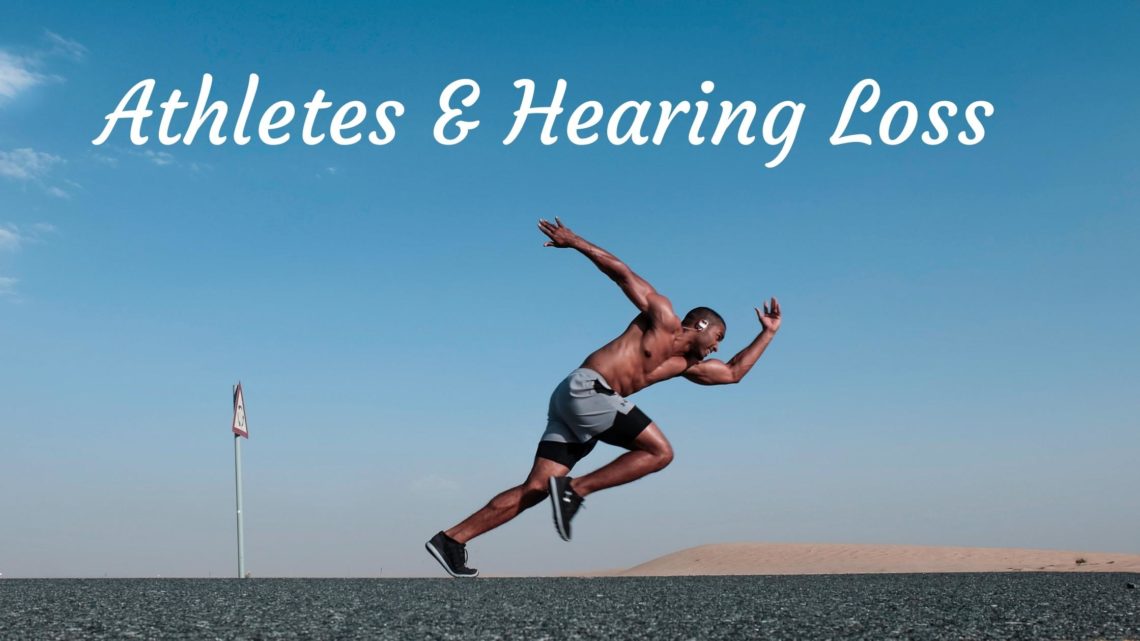Do you identify as an athlete? Even if you don’t play professionally, it’s still fair to call yourself one. You may enjoy the thrill of victory, pushing your body to new limits and the exhilaration of completion. However along with the rush comes health risks. Some of the most common health risks affecting athletes include injuries to knees, shoulders, back, and head. A less realized health issue affecting athletes is hearing loss. This may be a combination of loud stadiums, where the sound level can rival a jet taking off, mixed with the increase risk for head injury. Whether you are a professional, playing on a local team or just enjoy it for yourself, it is important to take precautions to protect your heairng.
Dangerous Decibels
Sound is measured in decibels and any decibel level over 85dB is loud enough to damage ears permanently. This is commonly referred to as noise induced hearing loss (NIHL) and can cause enough vibrations to damage the tiny hair-like cells which solely transmit audio signals from the inner ear to the brain. It’s not just the level of sound but length of exposure, but as the level rises the time for damage to occur becomes quickly smaller. For instance, at 85dB it takes 8 hours of exposure for damage to occur. For professional athletes who regularly play in sports arenas full of cheering fans, the cacophony can reach up to 140dB, enough to cause lasting damage in seconds!
Protection for Athletes
While different sports have standard safety gear such as helmets, knee pads and shin guards, ear protection is rarely part of any uniform. The Centers for Disease Control and Prevention, around 70% of people do not wear ear protection when around loud sounds and this includes professional and amateur athletes. After a loud game you may feel as if your hearing is diminished and there may be ringing in your ears (tinnitus). While this may subside after an hour or two, it still means you’ve sustained hearing damage that will last a lifetime. Hearing loss is a progressive condition and over years it can get to the point where you struggle to hear, even in the most ideal of situations. It is recommended that you wear hearing protection whenever you play. Foam earplugs can lower the decibel level by as much as 33dB. Some earplugs even allow you to hear quieter sounds so you can focus on the game, while cutting off damaging levels of sound at a certain decibel.
Athletes and Head Trauma
Another risk for many athletes in both contact and non-contact sports are concussions.
Concussions in athletes are all too common. It’s estimated that in the US about 3.8 million concussions occur annually due to sports-related injuries. The Center for Disease Control (CDC) estimates that 5-10% of athletes will experience a concussion every sports season.
Concussions not only increase the risk of traumatic brain injuries but leave athletes with chronic headaches, vertigo, and sometimes permanent hearing loss. When a concussion occurs, the pressure from a blow can damage the ear drum, the cells of inner ear or lead to chronic tinnitus. While you can’t account for every injury that comes your way, part of ensuring that you can participate in whatever sport or sports which most naturally comes to you is to wear a helmet. Helmets can reduce your risk of concussion and protect your brain and hearing.
Treating Hearing Loss
If you play a sport, it is no doubt because you love it. If you are professional athlete even before the big paychecks started rolling in you simply enjoyed how playing made you feel. If you feel like you’re hearing is not what it used to be and its affecting your awareness of space, daily conversations and how you play your game, then it is time to act. The first step is to schedule a hearing test. Hearing exams are simple, easy, quick, and painless, and will help to give us clarity on the degree of hearing loss you have and the best treatment for your particular needs and lifestyle. There is a wide array of hearing aids available, and some of them are better suited for the sport you love. To find out more schedule an appointment today and enjoy doing what you love to do for years to come.

